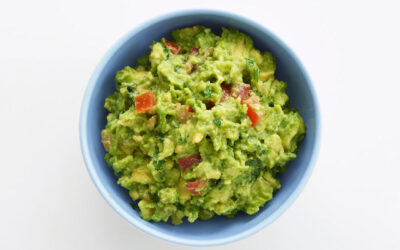By Christine Fitzgerald, Regional Director of Nutrition at Leisure Sports
Within the realm of low-carb, there is no one-size-fits-all. Instead, you must find your body’s sweet spot for carb intake and timing. Do a quick Google search and you’ll find that there are various formulas out there to help you figure out what your ideal carb intake should be. These formulas, however, aren’t entirely accurate because everyone’s body and lifestyle are so different.
Most people do best eating somewhere between 30-150 grams of net carbs daily (“net carbs” means you can subtract fiber and sugar alcohols like xylitol from your daily carb count, as they don’t affect your blood sugar). Thus, finding your ideal carb intake really comes down to trial-and-error, and also to knowing a few basics about carbs.
Simple Carbs and Complex Carbs
There are two types of carbohydrates: Simple and complex.
Simple carbs are processed foods often softer in texture that offer little when it comes to nutrition. Refined flours (white bread and baked goods) and white rice — foods that have been stripped of some of their natural high-fiber content including bran, germ, or endosperm — are prime examples of simple carbs. Soda, candy, and other sweeteners like table sugar and honey are also simple carbs. Complex carbs, on the other hand, are found in natural food form and contain essential vitamins, minerals, and antioxidants. Oatmeal, brown rice, quinoa, potatoes, beans, peas, and lentils are some examples of complex carbs.
Although all types of carbohydrates eventually break down into blood glucose, simple carbs, and complex carbs are not created equally. Complex carbs take longer to complete the digestion and absorption process and offer vital nutrients the body needs along the way. They also offer indigestible fibers that aren’t broken down and instead, aid in gut health and poo elimination. Conversely, simple carbs lack nutrients, which makes them quicker to break down. This quick digestion and absorption causes sharp spikes in blood sugar and leads to excess weight gain.
Carb Quality and Carb Timing
Rather than focusing on the number of carbs in your diet, focus on the type of carb and, more importantly, the source of it. For example, healthy complex carbs such as vegetables, quinoa, and sweet potatoes are better choices than highly refined white bread products or French fries, as your body will process whole foods more efficiently than processed grains and sugar.
When you eat carbs also has a huge impact on your body, athletic performance, and recovery. Never start your day with carbs, as this will spike your blood glucose in the morning and set you up for a yo-yo effect throughout the day. Instead, stick to fat and protein for stable energy and consume the bulk of your carbs at dinner.
Overall, pay attention to how you feel. Find a good balance that works best for your personal biology and keep in mind that optimal carb range varies between individuals.
6 Tips to Add Nutrient-Dense Carbs to Your Diet
- Get starch from beans and lentils as opposed to breads, potatoes, pasta, and rice.
- For pasta alternatives, spiral your zucchini or have spaghetti squash as the base or as a side dish.
- Eat cauliflower rice instead of white rice. Cauliflower rice is packed with vitamins, helps with inflammation and digestion, and can be found ready to eat.
- Snack on kale chips instead of simple carb, low-quality chips. You can’t get bored with the myriad of flavors that range from ranch to spicy.
- Chia is a great source of healthy carbs and fiber. Try adding a tablespoon of chia seeds to your smoothies or on top of your salad next time.
- Eat plenty of raw, green, leafy, and all types of non-starchy vegetables with everything. Examples include beets, collards, kale, Swiss chard, jicama, leeks, artichokes, cucumbers, radishes, and peppers.

Meet Christine Fitzgerald
Christine Fitzgerald is a two-time published author, a certified nutritionist, and holds a Master’s in Nutrition. Christine specializes in hormone education, testing, and balance; weight management; athletic performance; and recovery. She holds quarterly nutrition seminars across all ClubSport clubs.







